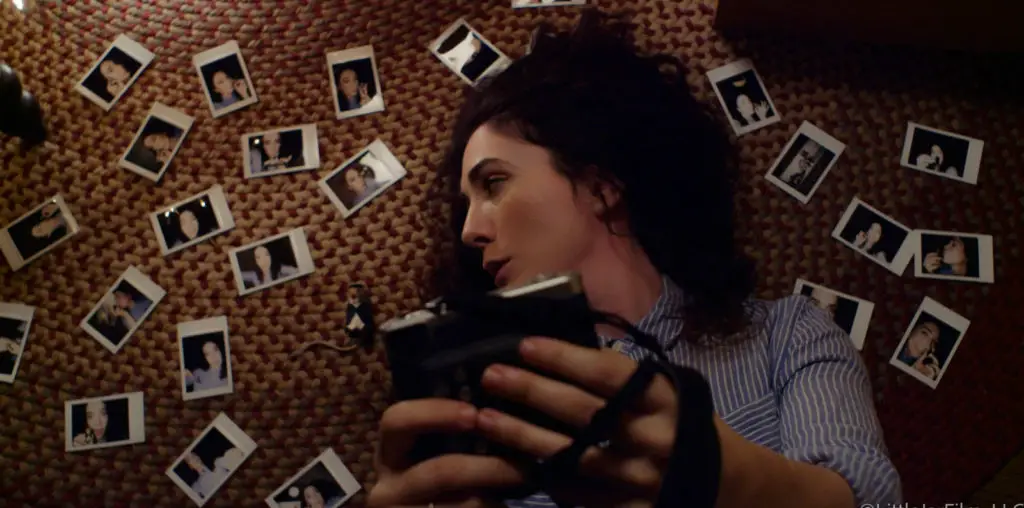
Before Leaving (Avant de Partir), the French documentary directed by Marie de Laubier, is sardine can-packed with more human drama than an afternoon’s worth of television soap operas, talk shows, and classic Hollywood movies. A mother bickers with her daughter concerning family decisions, Terms of Endearment style. Some friends enjoy romantic views of the Eiffel Tower from aboard a river-prowling ferryboat. A crooning man serenades an older woman with heartfelt ballads, in the sentimental spirit of “Moonstruck”. People die. Companions gather together to don protective eyewear and view a lunar eclipse. A gaggle of ladies relax and enjoy the pampering of a beauty salon attendant as their hair is washed and styled. There are raucous, festive birthday parties that rival Titanic’s foot stomping steerage shindigs, with a dozen voices belting out traditional French tunes and twice as many hands clapping along.
With so much on hand to entertain the viewer, why is it that de Laubier’s film struggles to find distribution? Could it be that unlike such current multiplex haunting youth fodder as The Fast and The Furious and Scooby Doo, Before Leaving is a subtitled foray into the lives of elderly nursing home patients? The film’s editor, Paul de Laubier (brother of Marie), honestly admits that Before Leaving lacks the sexy spin of such big-budget products. He explains that partially because of its pesky subtitles (“a big no-no,”) and its commercially risky subject matter, U.S. television broadcasters rejected the pioneering movie.
“Let’s be honest,” he concedes. “Do people want to see old crazy people in a nursing home? PBS doesn’t think so, although it’s a shame. But I’m not surprised. I think we are afraid of contemplating our future, and are more comfortable going by the established cliches about nursing homes as being too depressing.”
Indeed, Before Leaving’s setting, a facility in the Paris suburb of Sarcelles referred to as M.A.P.I. (the acronym denotes a company that manages 150 nursing homes in France), should be familiar to many Stateside citizens. Statistics show that nearly 2 million Americans are currently residing in approximately 16,000 nursing homes around the country. Meanwhile, gerontology experts claim that nearly 30% of all United States inhabitants will spend some time during their life in a nursing home, staying on average 19 months. With these striking numbers in mind, it’s likely that the very people currently being entertained by the frat house level hi-jinks of American Pie and Mr. Deeds will eventually encounter the omnipresent culture of long term care.
Perhaps in the sunset of their lives, such filmgoers will find themselves unable to independently engage in such daily activities as bathing, feeding, toileting, and maintaining grooming and hygiene, requiring a nursing home stay for lengthy rehabilitation. Perhaps they’ll endure the memory-squelching throes of Alzheimer’s Disease, and reside in a special dementia unit under constant supervision.
Perhaps they’ll enter the field as employees, hacking it out on the grunt level CNA staff to bathe and feed patients, transferring them from bed to wheelchair using hydraulic hoyer lifts. Eventually, they might rise up in the ranks to Administator status and run the place, like Ms. Yamina Abbes, a friend of the filmmaking team who takes center stage in Before Leaving. An energetic, sincere brunette, emoting empathy and understanding with a newly admitted patient who only wants to know when lunch begins, she can also be assertive and stern, as when persuading a would-be boarder that he’s too healthy and independent to reside at M.A.P.I. Meanwhile, many patients proclaim, “You have great teeth,” expressing their appreciation for her inviting smile.
“It was obvious that Yamina herself very quickly forgot about the crew,” observes Paul, “inasmuch as a two-woman crew is discreet. But she enjoyed showing her work, and sometimes went to Marie to inform her that some situation developing one floor below would be interesting to her. Sometimes she would ask Marie and Emmanuelle (Colinot, the director’s camerawoman) not to shoot, mainly out of respect for her diminished residents.”
Get the entire feature in part two of SENIOR CINEMA>>>
